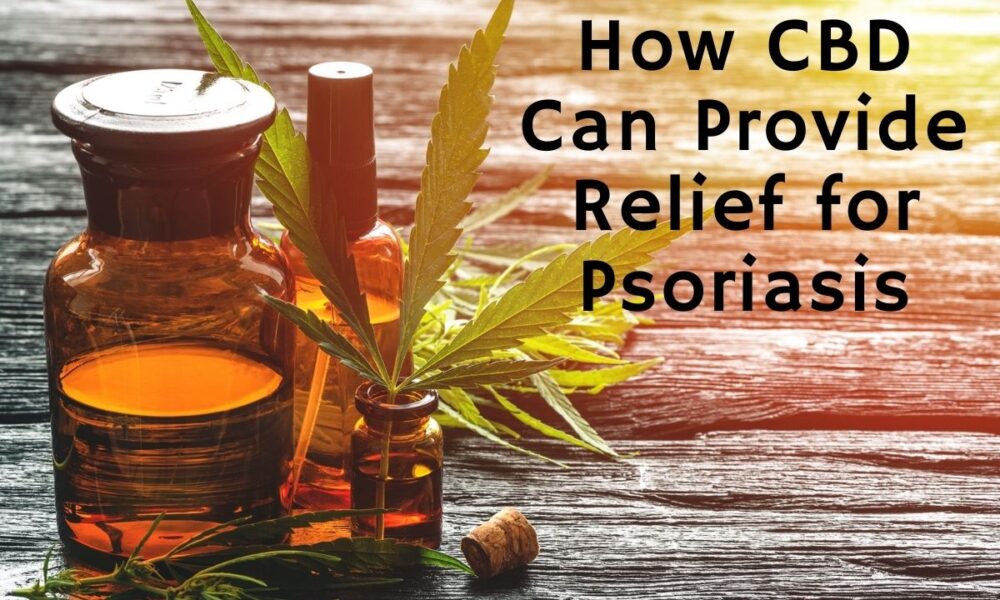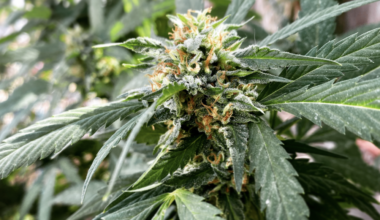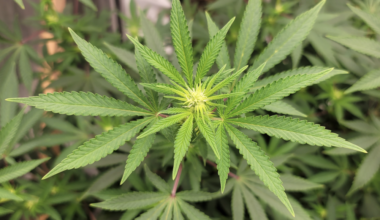The months-long lockdowns and quarantines issued by governments around the globe have left people around the world reeling from the effects not only of stress and living alone, but also with battling a global health crisis and dealing with a pandemic. For a lot of individuals living under extreme stress and in unprecedented times, dealing with psoriasis in a pandemic can be quite challenging.
The uncertainty of the current landscape and the volatile events happening in between are certainly not helping. As a matter of fact, these can even trigger psoriasis flare-ups and other skin conditions, leading individuals suffering from this to encounter even more pain, that is, beyond the mental and emotional feelings that the person in question is already dealing with.
This is where cannabidiol comes in. All the buzz surrounding this compound leaves many individuals wondering what CBD oil can do in alleviating the symptoms of psoriasis.
What is Psoriasis?
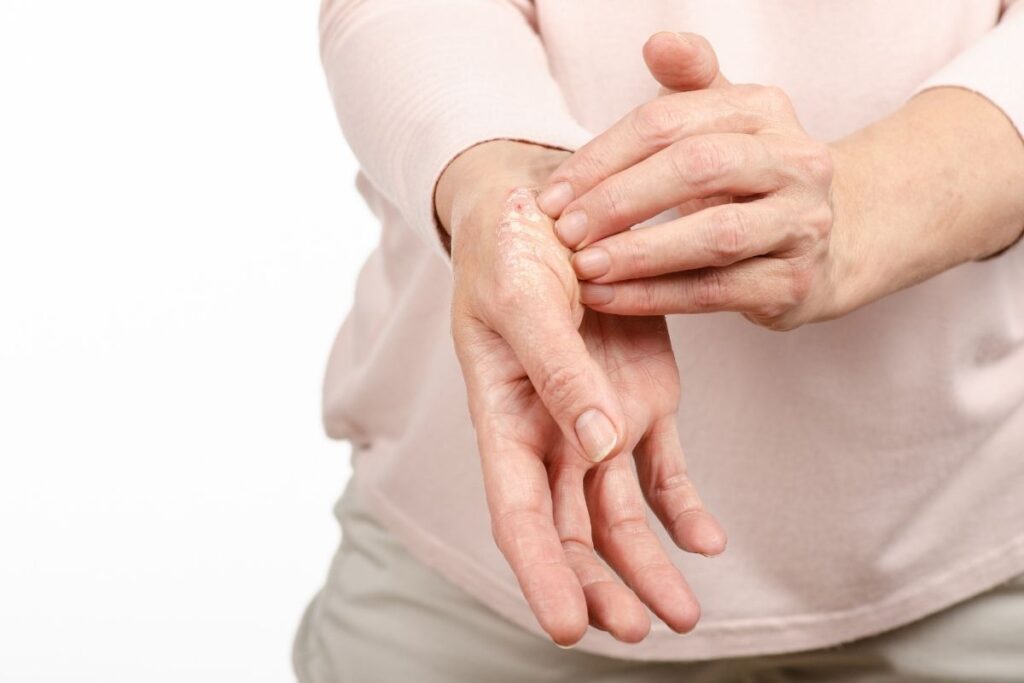
Psoriasis is a skin condition characterized by red, itchy, and scaly patches that are often seen in the knees, torso, scalp, and elbows. Some of the most distinct symptoms also include silvery scales, cracked skin, itching or burning, bleeding, thickened and pitted nails, and swollen joints that are often stiff.
This condition is seen as an immune system issue. It is caused by the fast regeneration of skin, resulting in scaly and red patches. While the root of the problem is yet to be discovered, triggers that can result in flare-ups are very much known. Triggers include stress, infections, cold and dry weather, smoking, heavy alcohol intake, some medications, or withdrawal from corticosteroids.
It is a chronic disease that does not have a cure as of yet. Instead, it comes and goes in cycles, making the condition difficult to manage. This is not to say that the condition is unmanageable. In fact, what patients can do is to manage it in order to prevent it from negatively affecting their quality of life.
Discover How CBD Can Provide Relief for Psoriasis
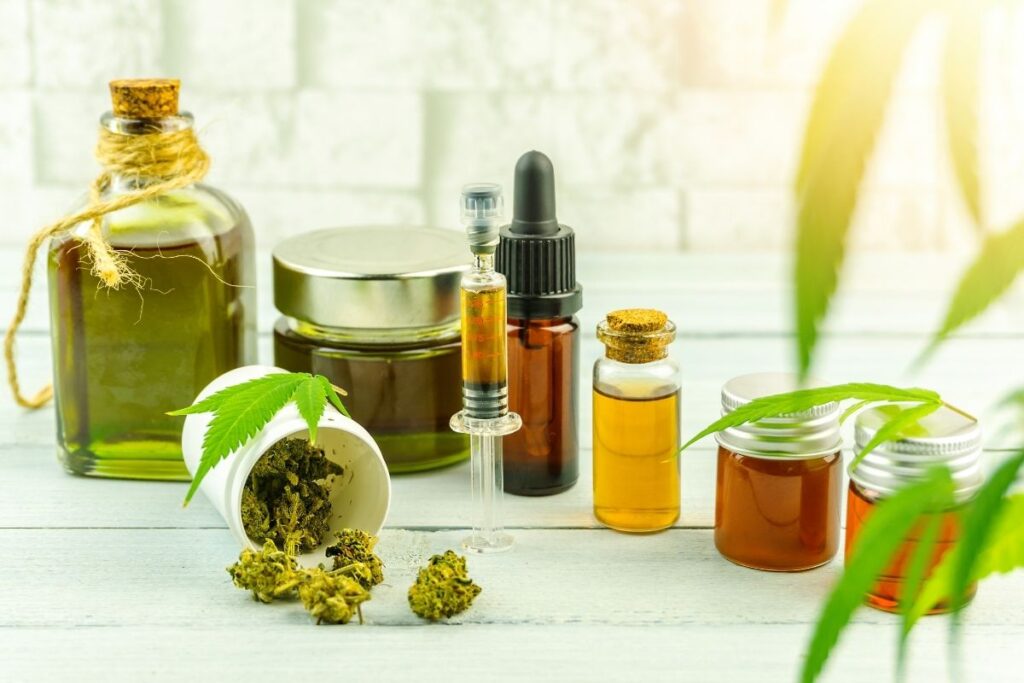
CBD is one option patients should consider when looking for ways to manage this skin condition. As mentioned, the main effects of psoriasis include itchy, scaly, bleeding, and painful patches. Using CBD products can help relieve these symptoms, especially as this cannabinoid is known for its pain-relieving, anti-inflammatory, and hydrating substance.
Because it is easy to find in infused form, patients can choose to use topical products, so it can be applied topically. This gives users an option to directly rub it over the affected site, offering more immediate relief. Plus, research shows that it can regulate skin cell growth, in this case, stop the process.
Aside from addressing the condition as it appears, CBD can also be used to hamper the cycle of flare-ups. While most triggers require major lifestyle changes, CBD can tackle one of the least controllable triggers of all: stress.
When consumed, this substance interacts with the nervous system in such a way that it can uplift the mood of the consumer. It can also boost the user’s energy, enhance their creativity, improve the quality of their sleep, and elevate their cognition. With these effects, patients can lower down their stress levels with the help of various products such as CBD oil, edibles, tinctures, and many others.
The Bottom Line
Psoriasis may be a condition many patients have to deal with for many, many years but with the help of CBD hemp oil and other infused products, they can live knowing that their condition is managed efficiently. Combined with lifestyle changes, patients can make sure that this skin disease does not affect their quality of life.
Medical Disclaimer:
The information provided in these blog posts is intended for general informational and educational purposes only. It is not a substitute for professional medical advice, diagnosis, or treatment. Always seek the advice of your physician or other qualified healthcare provider with any questions you may have regarding a medical condition. The use of any information provided in these blog posts is solely at your own risk. The authors and the website do not recommend or endorse any specific products, treatments, or procedures mentioned. Reliance on any information in these blog posts is solely at your own discretion.
